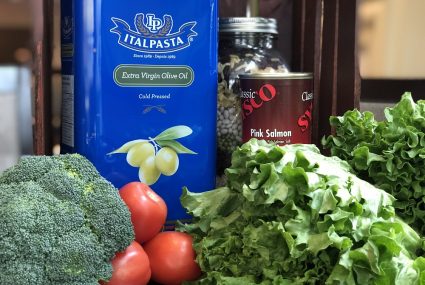Inflammation plays a big role in the body. It’s how we fight infection, react to allergens in the body and heal from injuries. While inflammation is sometimes necessary, it’s not something that is good to experience over the long term.
Inflammation can become chronic and happen even when we’re not fighting a foreign invader to the body. A number of diseases (such as cancer, heart disease, diabetes, arthritis, and more) have been linked to inflammation. If you suffer from chronic inflammation, it’s a good idea to look at your diet to see if some of the foods you’re eating could be the underlying cause.
Foods That Cause Inflammation
The list of foods that are known to contribute to inflammation should not be a surprise. Many of these common culprits have gotten a lot of attention for being unhealthy in general, with many of them linked to diseases like type 2 diabetes and heart disease. The top foods to avoid when you’re worried about inflammation are:
- Refined carbohydrates (such as white bread and pastries)
- Fried foods
- Soda and other sugar-sweetened beverages
- Red meat and processed meat (hot dogs, sausage)
- Margarine, shortening, and lard
Many of these foods are known to contribute to weight gain, which also adds to the risk of inflammation. While avoiding these foods is key to reducing inflammation, it’s not enough to simply cut them out of your diet. You should also consider adding in some foods that are known to reduce inflammation as well.
Include These Anti-Inflammatory Foods in Your Diet
There are a number of foods that reduce inflammation in the body. With so much variety, it’s easy to incorporate them into your diet. Try to include a few of them in your daily meals and snacks.
- Tomatoes – these are rich in lycopene, an antioxidant that may reduce inflammation
- Olive oil – contains healthy oleic acid, which can reduce blood pressure
- Green leafy vegetables, such as spinach, kale, and collards – these contain a variety of nutrients like vitamin E, calcium, iron, and phytochemicals that help reduce inflammation
- Nuts like almonds and walnuts – most nuts contain antioxidants, which fight inflammation
- Fatty fish like salmon, mackerel, tuna, and sardines – contain omega-3 fatty acids, which are known to reduce inflammation
- Fruits such as strawberries, blueberries, cherries, and oranges – berries are rich in polyphenols and anthocyanins, and fruit is high in antioxidants
- Garlic and onions – these contain chemicals like the antioxidant quercetin, which inhibits histamine and helps reduce inflammation
- Ginger and turmeric – these spices have anti-inflammatory properties; turmeric also contains curcumin, an extra potent anti-inflammatory compound
The Mediterranean diet is especially great for those who want to incorporate more anti-inflammatory foods into their meals. This diet is high in fruits, vegetables, nuts, whole grains, fish, and healthy oils. However, you don’t necessarily need to stick to one specific diet. Overall, you want to try to eat a more natural diet, which is low in processed foods. This means cutting out junk food and pre-packaged convenience foods.
At Bria Communities, we have in-house chefs that prepare meals for our residents. Case and point, the staff at Magnolia Gardens and The Waterford work with dieticians to create menus that are nutrient rich, with a focus on fruits, vegetables, and natural foods.
Our regular menu focuses on creating a balanced diet for seniors, with many anti-inflammatory foods included. There are times when residents have dietary needs that require special attention. In these cases, we always work closely with them to create delicious meals that work for them.

Comments